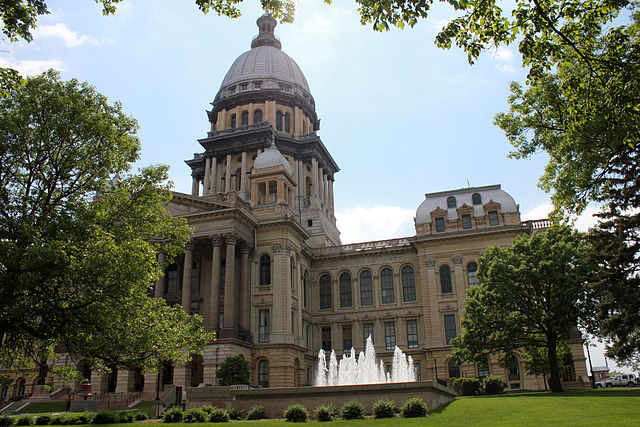A coalition of some of the largest labor groups in Illinois filed a motion today calling on the court to speed up its ruling regarding the constitutionality of Illinois’ pension reform law.
The coalition, We Are One Illinois, says the Supreme Court’s July decision—where the court ruled retirees’ health benefits are protected under the state’s constitution—confirms that Illinois’ pension reform law is illegal.
From CapitolFax:
Yesterday, the We Are One Illinois coalition, along with other plaintiffs, filed a motion in Sangamon County urging the Circuit Court to enter judgment in the plaintiffs’ favor on the State’s affirmative defense in light of the recent Supreme Court decision in the case of Kanerva v. Weems. The We Are One Illinois coalition and other plaintiffs assert that the Kanerva decision confirms that the Pension Protection Clause in the Illinois Constitution is absolute and without exception, even with respect to the fiscal circumstances alleged by the State in its defense.
Illinois says its dire fiscal situation gives it the authority to cut to pension benefits, even if they are constitutionally protected. From Reuters:
The state has contended that its sovereign powers allow it to act in a fiscal emergency. Illinois has a $100 billion unfunded pension liability and the country’s worst funded state retirement system. Illinois’s credit ratings are also the lowest among U.S. states.
But the court’s July decision doesn’t bode well for the state’s case. At the time, the court wrote:
“[I]t is clear that if something qualifies as a benefit of the enforceable contractual relationship resulting from membership in one of the State’s pension or retirement systems, it cannot be diminished or impaired … Giving the language of article XIII, section 5, its plain and ordinary meaning, all of these benefits, including subsidized health care, must be considered to be benefits of membership in a pension or retirement system of the State and, therefore, within that provision’s protections.”
We Are One Illinois issued the following statement after filing the motion:
“The Kanerva decision confirms what we have always argued, that the state’s constitutional language guards against any diminishment or impairment of pension benefits that Senate Bill 1 imposes. We believe, then, that the State’s defense is without merit and so have asked the Court in this motion to rule in our favor on the State’s defense that seeks to justify Senate Bill 1. We maintain that the constitution protects the hard-earned and promised retirement savings of our members and remain ready to work with any legislator willing to develop a fair and legal solution to our state’s challenges.”
Photo credit: “Gfp-illinois-springfield-capitol-and-sky” by Yinan Chen, Via Wikimedia Commons

